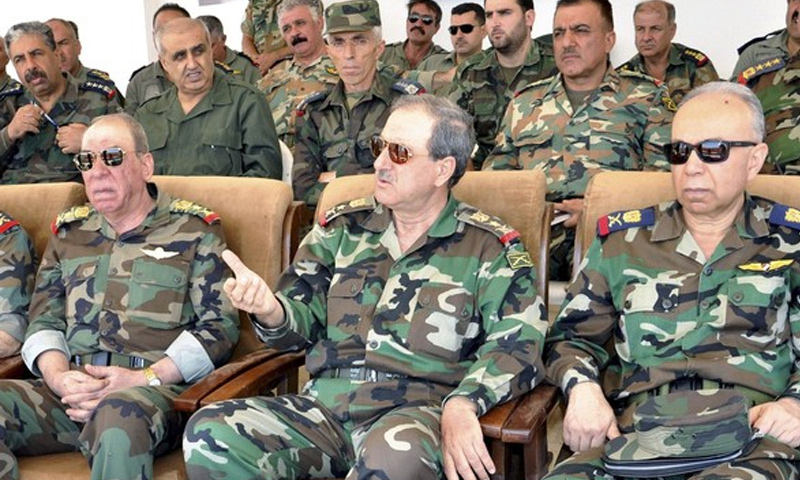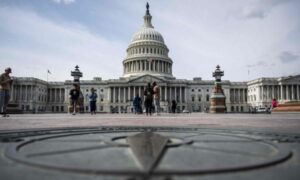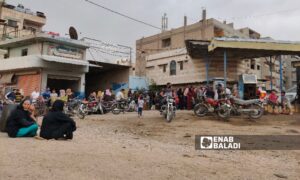
Fifth Anniversary of the “Crisis Cell” … Largest Operation that Targeted Al-Assad’s Officers

Tuesday, July 18, marks the fifth anniversary of the “Crisis Management Cell” bombing, which targeted the National Security building in the capital Damascus and killed senior figures in the Syrian regime.
Until now, the details of the 2012 bombing in Al-Rawda Square in Damascus, which was adopted by factions of the Free Army, have shrouded in mystery. The regime considered it as a security breach and others accused the regime itself of carrying it out.
The surprise and the biggest slap to the Syrian regime were the death of the Defence Minister, General Daoud Rajha, his deputy and Al-Assad brother-in-law, Assef Shawkat, in addition to Hassan Turkmani, head of the cell, and head of the National Security Bureau Hisham Bakhtiar.
Interior Minister Mohammed Al-Shaar was also injured and there were conflicting reports on the fate of other figures who were present at the meeting, which included the members of the cell that is formed to suppress the revolution at that time.
Informed sources said at that time that the windows of the National Security building did not crash after the bombing, and international agencies said that security measures have not been tightened in the areas surrounding the building at that time.
The bombing of Damascus, which was adopted by the faction “Liwa Al-Islam” that evolved later to Jaysh Al-Islam, has drawn a wide international condemnation and analysts said that Syria has become since then a field of regional projects, especially with the United States’ statements which declared that Al-Assad lost control over Syria.
The US demanded then unity to begin a political transition process and called on Russia and the international community to “the need to prevent the outbreak of civil war” through cooperation with the UN envoy to Syria, Kofi Annan at that time.
After the bombing, there was intense artillery bombardment of the capital neighbourhoods which were out of the regime’s control, including Sayyida Zeynab, At Tadamon, Al Kadam and Qaboun, amid clashes between Al-Assad forces and opposition factions in the centre of the capital.
After the announcement of the results of the operation, Al-Assad appointed General Fahd Jassem Al-Freij, who was then Chief of Staff, as Defence Minister. The head of the State Security Department Ali Mamlouk replaced Bakhtiar and Abdel-Fatah Qudsiyeh was appointed as his deputy, while Major General Mohammed Dib Zaitoun replaced Mamlouk in presiding over State Security.
The repercussions of the bombing, which Iran was accused of, also emerged clearly on the surface, as the splits in the military sector escalated in the aftermath of the incident and tens of splits were registered in different parts of Syria.
Politicians describe what happened in the bombing as “a calculated settlement of accounts.” They perceive it as a policy of Al-Assad’s family which Hafez started with the killing of a number of his close associates, most notably Amin al-Hafiz and Salah Jadid, up to the assassinations that took place outside the Syrian borders.
The bombing of the “Crisis Management Cell” justified US-Russian cooperation in managing the war in Syria, which has entered its sixth year. While Al-Assad remained in power till today, international forces have remained in control of the Syrian file, which is the most complex issue at this time.
if you think the article contain wrong information or you have additional details Send Correction
النسخة العربية من المقال
-
Follow us :
Most viewed
- Russian raids around al-Tanf accompanied by accusations against Americans
- Al-Assad issues decree on establishing alternative information ministry
- After controversy over his fate, Ali Mamlouk appears in Russia
- Washington clarifies to Enab Baladi Assad's claims of secret meetings with US officials
- Al-Jolani: The one-man rule

















 A
A
A
A
A
A








 More Politics
More Politics